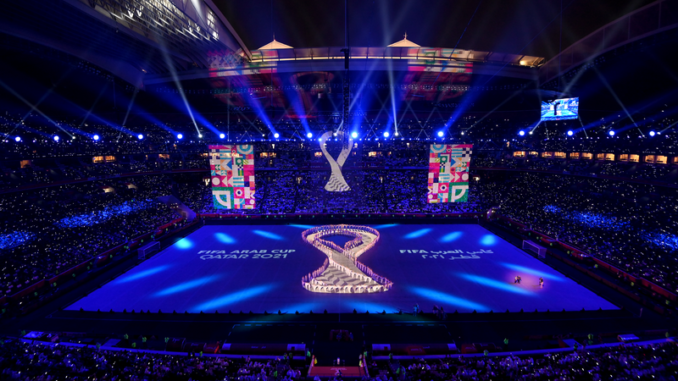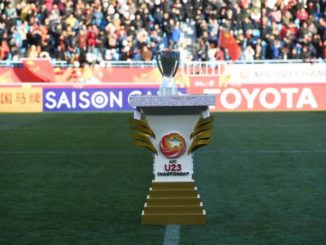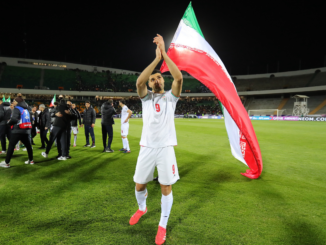
Happy New Year from all at The Asian Game. And what a year we have ahead of us in Asian football.
A year that promises to be like no other, with only a small matter of a global showpiece to finish, that’ll fling Asia back to the centre of the footballing world.
December’s historic, yet controversial FIFA World Cup in Qatar has already generated considerable column inches, so much so that many will be surprised that we’ve even made it to this final stretch.
Despite the increase in bluster and contention in comparison to any World Cup that preceded it, Qatar 2022’s immediate impact and lasting legacy is still unforeseen at this stage.
Given the European club-centric nature of world football, and the lasting trepidations of an enduring COVID pandemic dominating our thoughts, focus remains off Qatar’s shoulder for now, but that won’t always be the case.
The simmering pressure upon arrangements, from hotly debated local laws, on and off-field temperature concerns, to this week’s initial reports of accommodation shortages, just add to the already ferocious conjecture that feels very “World Cup” in its furore.
The same was felt ahead of Russia in 2018 (LGBTQ+ rights), Brazil in 2014 (political protests) and South Africa in 2010 (stadium construction), with little impact once the event took shape.
On one side this felt like a missed opportunity for wider debate and reform, but on the another it underlines the average punter’s predominant concerns that rarely gravitate from what’s happening on the pitch.
As with previous editions, Qatar 2022’s lasting impact will come down to intangible factors rather than the obvious pre-tournament controversies.
Whether the event is eventually remembered for all that has gone before off-the-field (and what is likely to come), whether it’ll pass by unremarkably as another FIFA embossed computer game simulation, or whether (whisper it quietly) it’s truly remembered as a once-in-a-lifetime, regional game changer remains unclear.
In the end, two of the key critiques levelled at Qatar; playing the World Cup in the northern hemisphere winter and within a country without a notable “footballing history” could in the end make it one of the most memorable in living memory – a cultural shot in the arm to open a narrow Western focus against a beige and ever sterilised European football scene endured on a weekly basis.
Last month’s FIFA Arab Cup, the precursor (in place of FIFA’s now defunct Confederations Cup format) to 2022’s World Cup was an overwhelming success.
For a test event, crowds were outstanding; 25,000 up to 60,000+ for larger matches, with an unequivocal Middle Eastern feel that brought together two continents in a highly competitive, vibrant and unique showpiece; exactly what we want from a regional World Cup host.
On the pitch, hosts Qatar continue to demonstrate their potential to become this tournament’s nominal underdog and potential neutral favourite come December.
Many put a success of a World Cup on the performance of the hosts; and with Qatar’s third place finish last month, their semi-final appearance at last year’s CONCACAF Gold Cup and sporadic positive showings in Europe, they have already proven their potential if they can retain fitness and consistency in form (question marks levelled against them for years).
The off-field matters will, of course, take headline billing as we draw closer, and while some; the heat and the change in calendar should well have been put to bed by mid-year, concerns over Qatar’s human rights laws, and their applying of them, will no doubt be in the global spotlight right up until kick-off.
Amnesty International’s report in November, a year to the day prior to the World Cup start, made for damning reading on Qatar’s arduous and ham-fisted self-destruction by way of workers rights reform.
Significant changes should have improved workers rights, but too often the paper exercise hasn’t translated into practice, with numerous abuse of power examples still being highlighted, rebuffed often blindly by the Qatari authorities. Amnesty have called for further scrutiny and action in the coming year and beyond.
Football is at centre stage of this argument, with a number of European national sides threatening to boycott the tournament.
With the Middle East, through Qatar, UAE and now Saudi Arabia, wielding such control over European domestic football, however, such distinct ills being witnessed first hand may in the end prove beneficial in tackling these subjects head on rather than closing around our comfort zone.
Case in point Qatar’s laws concerning homosexuality, clumsily and infamously tackled from the start by then FIFA president Sepp Blatter, who suggested that sexual/affectionate displays to be refrained from during the tournament.
While outrage has been quite rightly raised, having an opportunity to contest this is surely better than closeting the issue out of sight.
In direct parallel to their clumsy implementation of reformed workers right laws, Qatar have and will likely go further against their own statutes and challenge their LGBTQ+ principals within their hosting.
The adoption of rainbow flags, having to answer regular awkward questions on the subject, the inevitable real world situations they’ll be presented with during the tournament are all examples of forced discussion and change, reasons why the World Cup needs to reach the full planet.
The same way at 2026’s World Cup debates over gun laws, immigration concerns and health care inadequacies should be raised with the US, the same as wealth distribution and examples of racial discrimination should be tackled in any future English bid.
In the same way we debate our own faults aside from a footballing standpoint, we should also consider other perspectives at this World Cup; that of Qatar as a country, both in a societal and sporting sense.
There are numerous stories worth a look into here; Qatar as a melting pot of decades of immigration, the long and complex culture of local communities, its footballing endeavours from history and the recent past, many examples worthy of wider story telling that have largely been ignored so far.
While the coming twelve months are likely to be fought between Qatar and a sceptical Western media on a number of fronts, the preparation and discussion it holds will be far from dull, and so it shouldn’t be for the most inspiring sporting event on the planet.
For this, for better or worse, Asia and the Middle East take their place at centre stage in 2022.
Photo: twitter/roadto2022en




